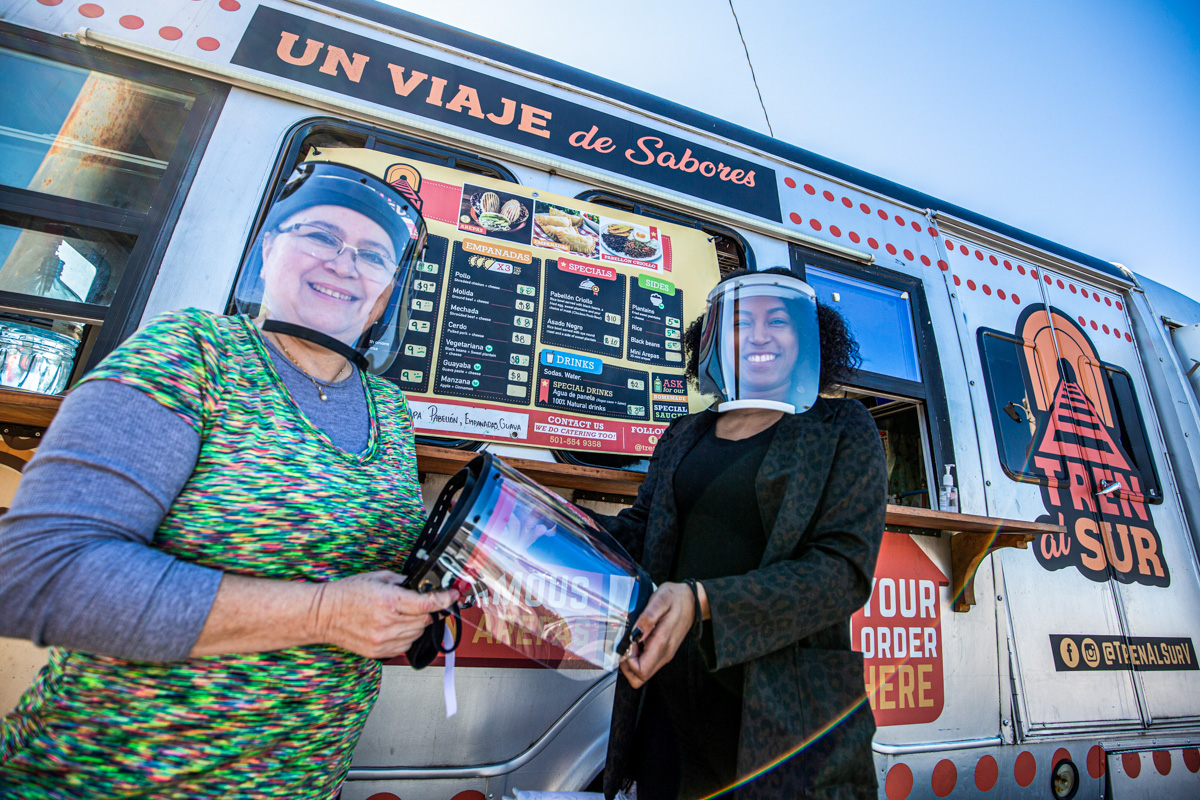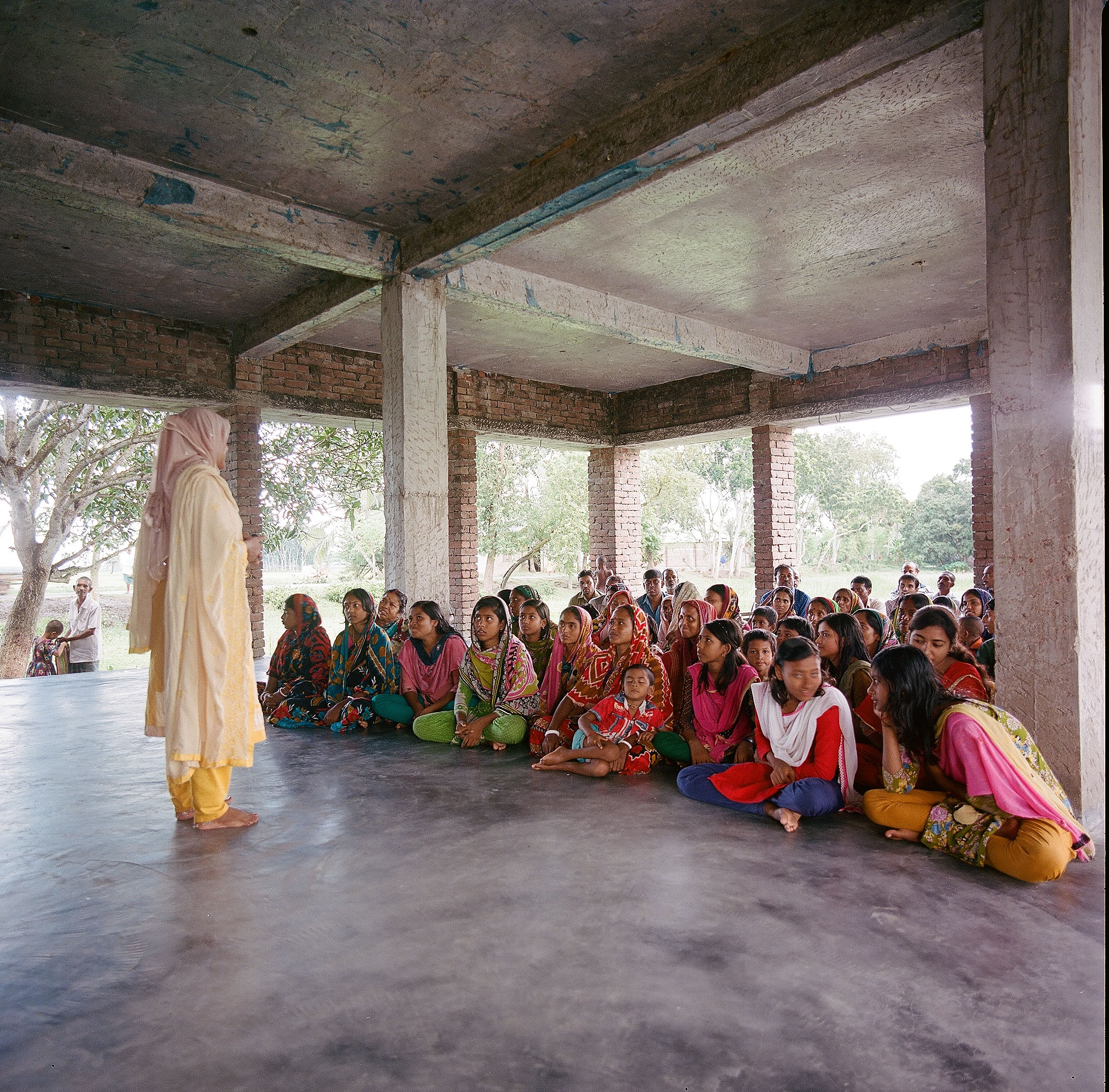
Claiming Space for Women’s Leadership
On International Women’s Day, Winrock celebrates women’s leadership in all its forms
Dina Scippa, Senior Gender and Social Inclusion Adviser, AGILE (Analytics, Gender, Inclusion, Learning and Evaluation) unit

When discussing the careers of women leaders, there’s a phenomenon referred to as the “glass cliff.” A relative of the term glass ceiling, the “glass cliff” is when a company is in trouble and a female leader is put in charge to save it. The notion suggests that when women are finally given a chance to prove themselves in a senior position, they are handed something that is already broken where the chances of failure are high. One might argue that women thrive as leaders in times of crisis – but why must we wait until times of crisis to showcase women’s leadership?
In recent studies of countries and states in the U.S. where women leaders have been more successful than their male counterparts at reducing COVID-19 transmission, unbalanced levels of women’s leadership have been connected with greater risks of creating COVID-19 response plans that do not consider the disproportionate impact of the pandemic on women and girls, and of failing to implement policies that support them, according to CARE. Well beyond heads of state, women’s leadership has contributed significantly to managing the pandemic in schools, communities, workplaces and homes.
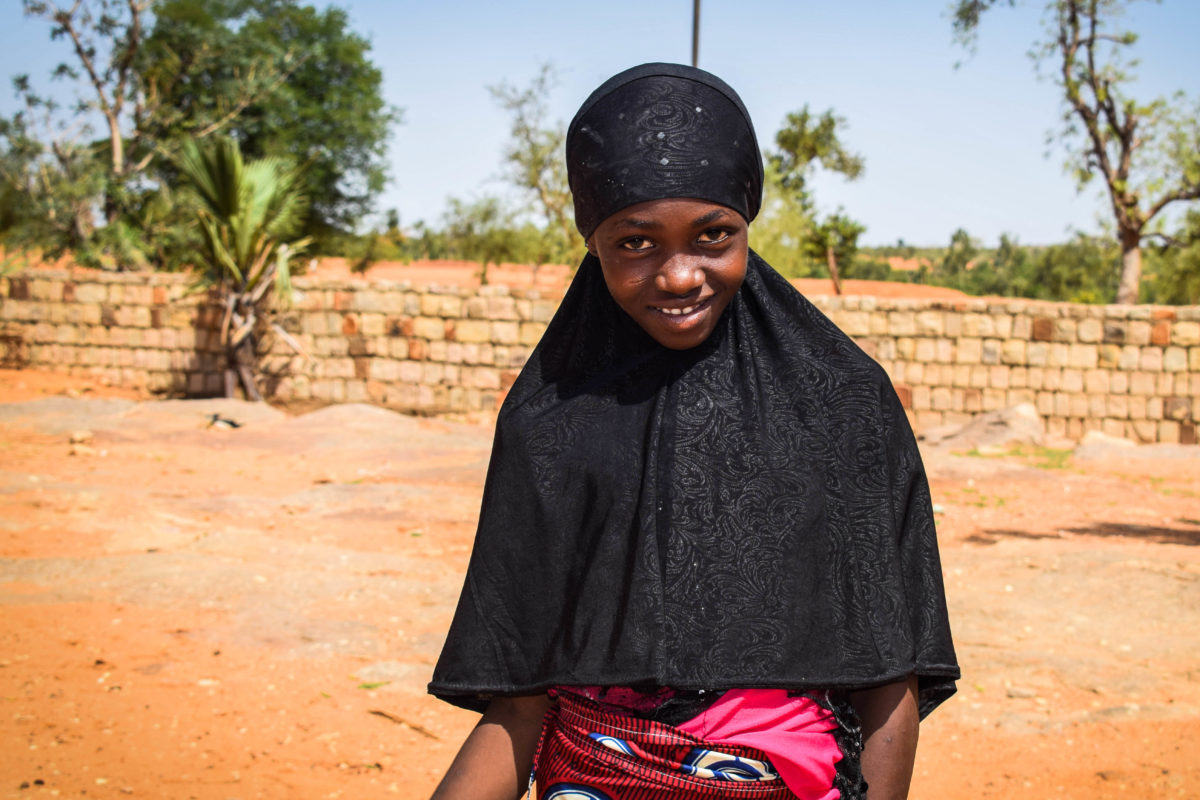
Despite what we have seen in terms of a formidable response from women’s leadership during the pandemic, systemic barriers, gender bias, discrimination and gender stereotypes still pack a devastating blow. An estimated 132 million girls are not attending school (though Winrock is doing its part to ensure that they do so), and, within the next decade, 140 million girls will be married before they reach the age of 18. In fact, if current trends persist, it will take an estimated 108 years to close the global gender gap.

In addition to persistent pre-existing social and systemic barriers to women’s participation and leadership, new barriers have emerged with the COVID-19 pandemic. Across the world women are facing increased domestic violence, unpaid care duties, unemployment and poverty. Unfortunately, despite women making up a majority of front-line workers, there is disproportionate and inadequate representation of women in national and global COVID-19 policy spaces. In the context of our programming and organizational culture, the gap in women’s leadership must be prioritized in order to address long-term hurdles, such as:
- Workforce Participation. In September 2020, four times as many women as men dropped out of the labor force in the United States (865,000 women compared with 216,000 men). In fact, one out of four women who reported becoming unemployed during the pandemic said it was because of a lack of childcare, twice the rate of men. Winrock recognizes the importance of family-forward workplace policies to address the challenges of this moment brought on by the pandemic and has sought to implement more flexibility for working parents’ caretaking responsibilities in our commitment to advancing gender equality.
- Climate Change. Women and girls have been leading climate action and environmental movements, but men still occupy 67 percent of climate-related decision-making roles. Women across the world are disproportionately affected by climate change, and climate-induced humanitarian disasters often worsen existing gender inequalities, leaving women and girls prone to higher rates of violence, malnutrition and more. In the context of our programming in climate change adaptation, we seek to empower women leaders in the climate movement so that solutions and responses to the climate emergency won’t continue to exclude women’s needs and undermine their rights.
- Agriculture. Women ensure food security and build climate resilience, but when it comes to owning land, accessing agricultural inputs, financing and technologies for climate resilience, they are left far behind. Since more than one-third of women’s employment is in agriculture, increasing women’s access to land and providing better support for women farmers is essential. Within our robust agriculture portfolio Winrock strives to promote women’s experience and insights to lead us all to a better understanding of managing scarce resources, promoting innovation and mitigating climate risks.
- Entrepreneurship and the Workplace. Despite a record-breaking new high of women CEOs of Fortune 500 companies in 2020, only 7.4 percent of companies on the list are run by women, and women are less likely to be entrepreneurs (something Winrock works to counteract). Intersecting and multiple forms of discriminatory practices such as sexual harassment, the gender wage gap and lack of family-friendly policies at the workplace keep women from advancing in their careers and claiming leadership positions.
- Women’s Rights Organizations. Around the world, the space for civil discourse and movements is shrinking. Since 2008, civil society repression has deepened in 26 countries worldwide, thus creating obstacles for women’s organizations and movements to register, engage in advocacy and receive external funding in some countries. Winrock partners with women’s rights organizations because their role is critical in teaching the next generation the importance of gender equality and supporting girls’ activism.

Women stand at the front lines of the COVID-19 crisis, as health care workers, caregivers, innovators, community organizers and as some of the most exemplary and effective leaders in combating the pandemic. The crisis has highlighted both the centrality of their contributions and the disproportionate burdens that they carry.

Our world will never be the same after COVID-19. If we are going to be realistic about building back better, we have to be honest about what’s broken now. COVID did not create new inequalities; it highlighted and exacerbated existing ones. What has been glaringly clear is that women, particularly women of color and women from low-income communities and from the Global South, do not have the same level of power and agency in their communities. To uphold women’s rights and fully leverage the potential of women’s leadership in pandemic preparedness and response, the perspectives of women and girls in all of their diversity must be integrated in the formulation and implementation of policies and programs.
As Shirley Chisholm, the first Black U.S. congresswoman and first Black majority party candidate to run for president once said: “If they don’t give you a seat at the table, bring a folding chair.” The future is better with women at every table where decisions are being made — from the kitchen table to the conference room table. We must continue to amplify women’s voices to ensure a future where women’s leadership is no longer an exception but the norm.
Related Projects
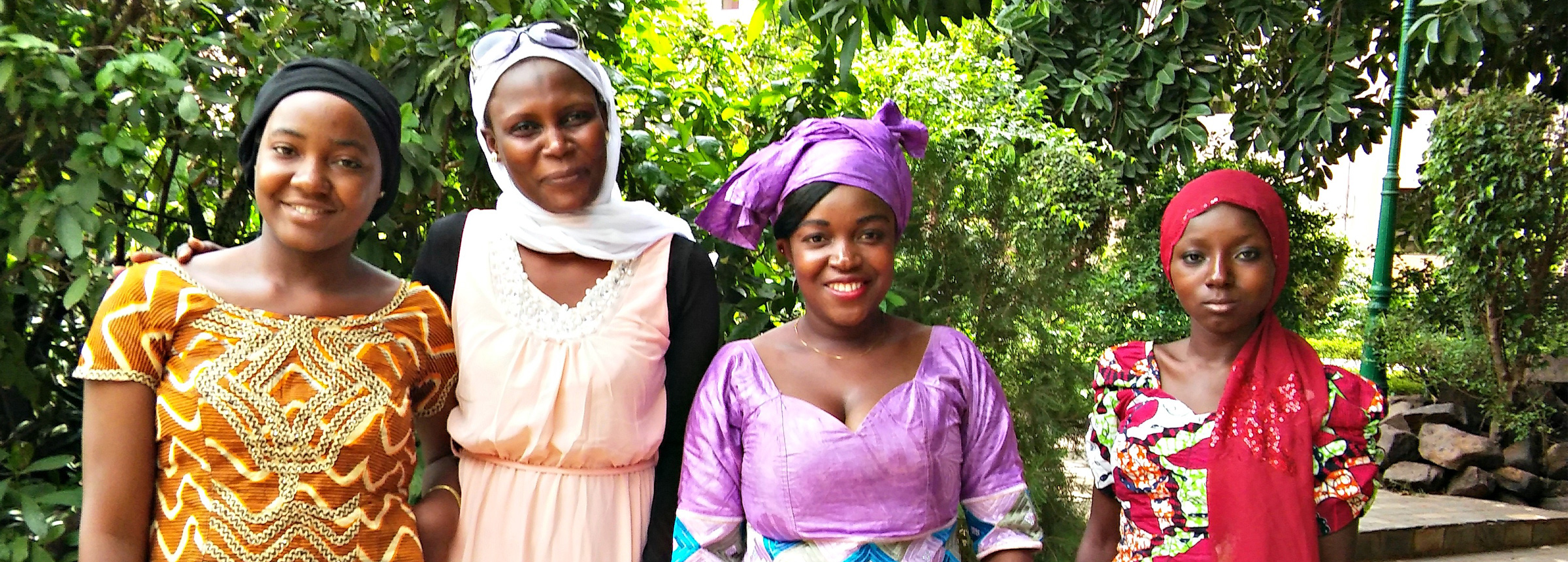
USAID Girls Leadership and Empowerment Through Education (USAID GLEE)
Adolescent girls in Mali confront a host of barriers to educational access. Although enrollment rates have risen over the last 20 to 30 years, a gender gap persists nationally; girls are enrolled at a much lower rate than boys. But there is a mutually reinforcing relationship between adolescents’ health and their educational attainment. When they…
Climate Resilient Ecosystems and Livelihoods (CREL)
Climate change and a growing population are putting increasing levels of stress on Bangladesh’s forests, wetlands and other ecosystems. The USAID-funded Climate Resilient Ecosystems and Livelihoods program is helping to disseminate management methods that help communities better collaborate with local and national governments to balance biodiversity protection with sustainable economic development.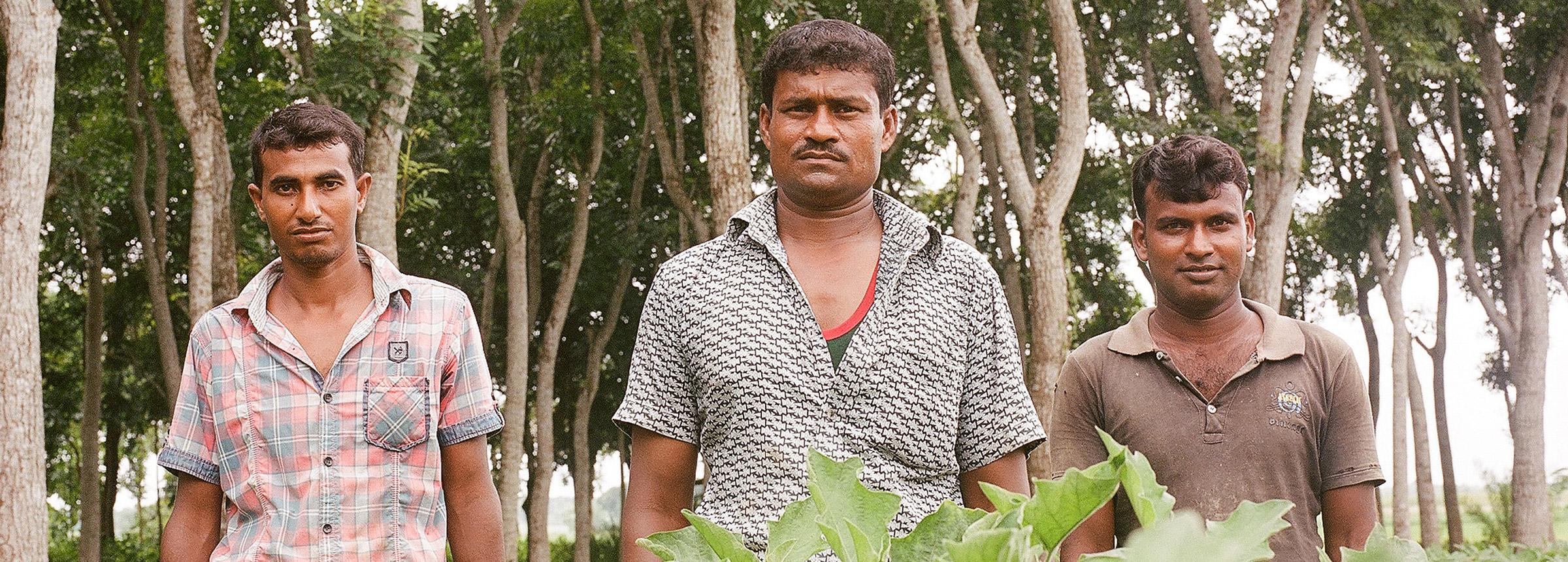
Bangladesh Counter Trafficking-in-Persons Project (BC/TIP)
BC/TIP’s main objective was to reduce human trafficking and child marriage in Bangladesh in order to achieve improved protection of civil and human rights in six interrelated areas: To achieve this, BC/TIP connected local and national government representatives, non-governmental organizations, the business community, community leaders, and citizens. The project prioritized the sustainability of CTIP efforts […]